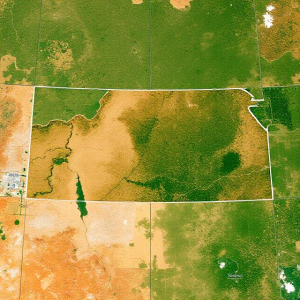Fertilizer registration in Kansas is a crucial process managed by the Kansas Department of Agriculture (KDA) to regulate the production, distribution, and use of fertilizers across the state.
The primary goal is to ensure that fertilizers sold meet safety, environmental, and quality standards, thereby supporting the agricultural sector and protecting the environment.
This guide delves deep into the steps, benefits, challenges, and frequently asked questions surrounding Kansas fertilizer registration to provide manufacturers, distributors, and stakeholders with all the necessary information.
Understanding the Kansas Fertilizer Registration Process
The Kansas fertilizer registration process is a legal requirement for any manufacturer or distributor intending to sell fertilizers in the state. Each fertilizer product must be thoroughly reviewed and approved by the KDA to ensure it meets the state’s stringent quality standards. This process involves documenting the composition, safety data, and intended use of the fertilizer.
Key Objectives of Fertilizer Registration
The Kansas Department of Agriculture ensures fertilizer registration achieves the following objectives:
- Public Safety: Protect farmers, consumers, and the general population from unsafe or low-quality products.
- Environmental Sustainability: Prevent environmental degradation caused by overuse or misuse of fertilizers.
- Quality Assurance: Ensure fertilizers deliver the nutrients they promise to crops, supporting agricultural productivity.
Who Needs to Register Fertilizer in Kansas?
Manufacturers and distributors of any fertilizer product intended for sale or distribution within Kansas must register their products. This includes both chemical and organic fertilizers. Exceptions may apply to fertilizers intended for personal or non-commercial use, but it is essential to verify these exemptions with the KDA.
Detailed Steps for Fertilizer Registration
Registering fertilizers in Kansas involves several detailed steps, each of which must be carefully followed to avoid delays or penalties:
1. Gather Necessary Documentation
The first step in the registration process is to collect all required documents. These typically include:
- Product Label: A comprehensive label detailing the fertilizer’s name, composition, and usage instructions.
- Safety Data Sheet (SDS): Information on handling, storage, and emergency measures.
- Nutrient Analysis: A report verifying the nutrient content aligns with regulatory standards.
2. Complete the Application Form
The KDA provides an online platform and downloadable forms for fertilizer registration. Applicants must fill out these forms accurately, providing detailed information about the product and its intended use.
3. Pay Registration Fees
Registration fees vary depending on the type of fertilizer and the intended scale of distribution. As of the latest guidelines, fees can range from $50 to $200 per product. Check the KDA’s website for up-to-date information.
4. Submit the Application
Once the application form is complete and the fees are paid, submit the application along with all required documents. This can be done online or via mail to the KDA’s office.
5. Review and Approval
The KDA thoroughly reviews all submitted applications to ensure compliance with state regulations. This process may involve laboratory testing to verify nutrient claims and safety standards. If approved, a registration certificate is issued, allowing the product to be sold legally in Kansas.
Benefits of Fertilizer Registration
Registering fertilizers in Kansas offers several advantages to manufacturers, distributors, and consumers alike. These benefits include:
1. Legal Compliance
Registration ensures that manufacturers and distributors operate within the law, avoiding penalties and legal disputes.
2. Market Access
Registered products gain access to Kansas’s agricultural market, which is vital for businesses aiming to establish a foothold in the state.
3. Consumer Confidence
Products with registration certificates signal quality and safety, fostering trust among farmers and consumers.
4. Environmental Protection
Registered fertilizers comply with environmental regulations, minimizing their ecological impact and contributing to sustainable farming practices.
Challenges in the Registration Process
While fertilizer registration is beneficial, it also presents certain challenges, including:
1. Documentation Requirements
Gathering all necessary documents and ensuring their accuracy can be a time-consuming process.
2. Cost Implications
Registration fees and associated costs for testing and documentation can be burdensome, especially for small businesses.
3. Processing Delays
The review process may take weeks or months, depending on the volume of applications and the complexity of the product being registered.
FAQs About Fertilizer Registration in Kansas
Here are some common questions and answers about the fertilizer registration process:
1. Is fertilizer registration mandatory in Kansas?
Yes, all fertilizers sold or distributed in Kansas must be registered with the KDA.
2. What documents are required for registration?
Essential documents include the product label, safety data sheet (SDS), and nutrient analysis report.
3. How much does registration cost?
Fees range from $50 to $200 per product, depending on its type and scale of distribution.
4. How long does the process take?
The timeline for approval varies but typically takes several weeks to a few months.
5. Can registration be completed online?
Yes, the KDA provides an online portal for fertilizer registration applications.
6. Are there penalties for non-compliance?
Yes, selling unregistered fertilizers can result in fines, legal action, and product recalls.
7. What happens if a registered fertilizer fails to meet quality standards?
Such products may face deregistration, recalls, and legal consequences, emphasizing the need for thorough quality checks before application.
Conclusion
Fertilizer registration in Kansas is a vital step for manufacturers and distributors aiming to ensure legal compliance, product quality, and market access. By adhering to the guidelines and processes established by the Kansas Department of Agriculture, businesses can contribute to the state’s thriving agricultural industry while protecting the environment. Start the registration process today to establish trust, credibility, and a robust market presence in Kansas. For more information, visit the official KDA website or contact their support team.
Recent Posts
When To Apply Liquid Copper Fungicide?– Expert Recommendations
Applying liquid copper fungicide at the correct time is essential for maximum disease control and plant safety. Because copper functions as a protectant fungicide, it must be applied before infection...
Do I Need To Wear A Mask When Spraying Copper Fungicide? 10 Best Reasons Why
Spraying copper fungicide is a common practice in gardening and agriculture, but many people underestimate the health risks associated with inhalation exposure. Fine copper particles and aerosolized...